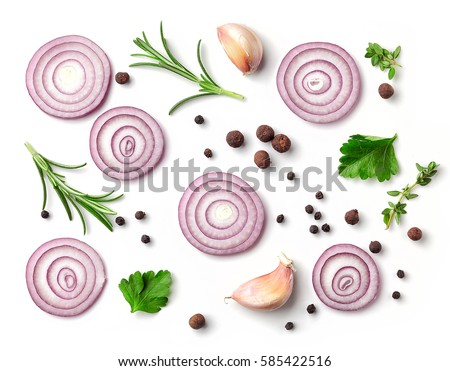If you ever wondered if onions offer health benefits, you'll be glad to know they certainly do. As an allium vegetable, one of the most important aspects of the phytonutrients in onions involves the affect they have on cancer. One of the most interesting aspects of the pungency of onions is that the more flavor they have, the more effectively they combat cancer. In fact, to lower your cancer risk, eat more onions.
Several antioxidant, cancer-fighting compounds in onions include the flavonoid quercetin, anthocyanins and sulfur compounds like onionin A (ONA), S-allylcysteine (SAC) and S-methylcysteine (SMC), and diallyl disulfide (DDS), as well as potent phenols and flavonoids. Other flavonoids, glutathione, selenium compounds and vitamins E and C are also compounds that adversely affect cancer cells.
Quercetin, studies indicate, decreases cancerous tumor initiation and inhibits the proliferation of cultured ovarian, breast and colon cancer cells. It's also associated with a decreased risk for brain cancer and a lower risk of lung cancer, even if you smoke. Onionin A, as another example, has been found in studies to be protective against epithelial ovarian cancer, the most common type of ovarian cancer, because it slows its growth, and was also found to slow the activity of other cancer types.
In fact, onions deliver more flavonoids than many other foods, which is amazing because these powerful phytonutrients have been linked to a decreased risk of diabetes and heart disease as well as cancer. They also have the distinction of being antiallergenic, antibacterial, antiviral and anti-inflammatory.
Article Source: mercola.com
Several antioxidant, cancer-fighting compounds in onions include the flavonoid quercetin, anthocyanins and sulfur compounds like onionin A (ONA), S-allylcysteine (SAC) and S-methylcysteine (SMC), and diallyl disulfide (DDS), as well as potent phenols and flavonoids. Other flavonoids, glutathione, selenium compounds and vitamins E and C are also compounds that adversely affect cancer cells.
Quercetin, studies indicate, decreases cancerous tumor initiation and inhibits the proliferation of cultured ovarian, breast and colon cancer cells. It's also associated with a decreased risk for brain cancer and a lower risk of lung cancer, even if you smoke. Onionin A, as another example, has been found in studies to be protective against epithelial ovarian cancer, the most common type of ovarian cancer, because it slows its growth, and was also found to slow the activity of other cancer types.
In fact, onions deliver more flavonoids than many other foods, which is amazing because these powerful phytonutrients have been linked to a decreased risk of diabetes and heart disease as well as cancer. They also have the distinction of being antiallergenic, antibacterial, antiviral and anti-inflammatory.
Article Source: mercola.com


No comments:
Post a Comment
Please leave a comment. Thank you.